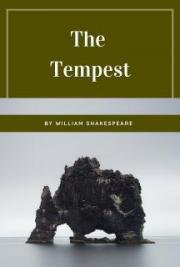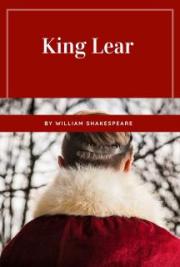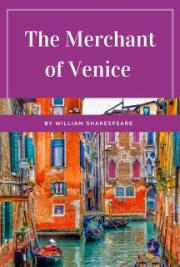ACT IV.
SCENE I.--A wooded pass near the field of battle:
drums, trumpets, firing, etc. Cries of 'God save Basilio!
Segismund,' etc.
(Enter Fife, running.)
FIFE.
God save them both, and save them all! say I!--
Oh--what hot work!--Whichever way one turns
The whistling bullet at one's ears--I've drifted
Far from my mad young--master--whom I saw
Tossing upon the very crest of battle,
Beside the Prince--God save her first of all!
With all my heart I say and pray--and so
Commend her to His keeping--bang!--bang!--bang!
And for myself--scarce worth His thinking of--
I'll see what I can do to save myself
Behind this rock, until the storm blows over.
(Skirmishes, shouts, firing, etc. After some time enter King
Basilio,
Astolfo, and Clotaldo)
KING.
The day is lost!
AST.
Do not despair--the rebels--
KING.
Alas! the vanquish'd only are the rebels.
CLOTALDO.
Ev'n if this battle lost us, 'tis but one
Gain'd on their side, if you not lost in it;
Another moment and too late: at once
Take horse, and to the capital, my liege,
Where in some safe and holy sanctuary
Save Poland in your person.
AST.
Be persuaded:
You know your son: have tasted of his temper;
At his first onset threatening unprovoked
The crime predicted for his last and worst.
How whetted now with such a taste of blood,
And thus far conquest!
KING.
Ay, and how he fought!
Oh how he fought, Astolfo; ranks of men
Falling as swathes of grass before the mower;
I could but pause to gaze at him, although,
Like the pale horseman of the Apocalypse,
Each moment brought him nearer--Yet I say,
I could but pause and gaze on him, and pray
Poland had such a warrior for her king.
AST.
The cry of triumph on the other side
Gains ground upon us here--there's but a moment
For you, my liege, to do, for me to speak,
Who back must to the field, and what man may
Do, to retrieve the fortune of the day.
(Firing.)
FIFE (falling forward, shot).
Oh, Lord, have mercy on me.
KING.
What a shriek--
Oh, some poor creature wounded in a cause
Perhaps not worth the loss of one poor life!--
So young too--and no soldier--
FIFE.
A poor lad,
Who choosing play at hide and seek with death,
Just hid where death just came to look for him;
For there's no place, I think, can keep him out,
Once he's his eye upon you. All grows dark--
You glitter finely too--Well--we are dreaming
But when the bullet's off--Heaven save the mark!
So tell my mister--mastress--
(Dies.)
KING.
Oh God! How this poor creature's ignorance
Confounds our so-call'd wisdom! Even now
When death has stopt his lips, the wound through which
His soul went out, still with its bloody tongue
Preaching how vain our struggle against fate!
(Voices within).
After them! After them! This way! This way!
The day is ours--Down with Basilio, etc.
AST.
Fly, sir--
KING.
And slave-like flying not out-ride
The fate which better like a King abide!
(Enter Segismund, Rosaura, Soldiers, etc.)
SEG.
Where is the King?
KING (prostrating himself).
Behold him,--by this late
Anticipation of resistless fate,
Thus underneath your feet his golden crown,
And the white head that wears it, laying down,
His fond resistance hope to expiate.
SEG.
Princes and warriors of Poland--you
That stare on this unnatural sight aghast,
Listen to one who, Heaven-inspired to do
What in its secret wisdom Heaven forecast,
By that same Heaven instructed prophet-wise
To justify the present in the past.
What in the sapphire volume of the skies
Is writ by God's own finger misleads none,
But him whose vain and misinstructed eyes,
They mock with misinterpretation,
Or who, mistaking what he rightly read,
Ill commentary makes, or misapplies
Thinking to shirk or thwart it. Which has done
The wisdom of this venerable head;
Who, well provided with the secret key
To that gold alphabet, himself made me,
Himself, I say, the savage he fore-read
Fate somehow should be charged with; nipp'd the growth
Of better nature in constraint and sloth,
That only bring to bear the seed of wrong
And turn'd the stream to fury whose out-burst
Had kept his lawful channel uncoerced,
And fertilized the land he flow'd along.
Then like to some unskilful duellist,
Who having over-reached himself pushing too hard
His foe, or but a moment off his guard--
What odds, when Fate is one's antagonist!--
Nay, more, this royal father, self-dismay'd
At having Fate against himself array'd,
Upon himself the very sword he knew
Should wound him, down upon his bosom drew,
That might well handled, well have wrought; or, kept
Undrawn, have harmless in the scabbard slept.
But Fate shall not by human force be broke,
Nor foil'd by human feint; the Secret learn'd
Against the scholar by that master turn'd
Who to himself reserves the master-stroke.
Witness whereof this venerable Age,
Thrice crown'd as Sire, and Sovereign, and Sage,
Down to the very dust dishonour'd by
The very means he tempted to defy
The irresistible. And shall not I,
Till now the mere dumb instrument that wrought
The battle Fate has with my father fought,
Now the mere mouth-piece of its victory
Oh, shall not I, the champions' sword laid down,
Be yet more shamed to wear the teacher's gown,
And, blushing at the part I had to play,
Down where that honour'd head I was to lay
By this more just submission of my own,
The treason Fate has forced on me atone?
KING.
Oh, Segismund, in whom I see indeed,
Out of the ashes of my self-extinction
A better self revive; if not beneath
Your feet, beneath your better wisdom bow'd,
The Sovereignty of Poland I resign,
With this its golden symbol; which if thus
Saved with its silver head inviolate,
Shall nevermore be subject to decline;
But when the head that it alights on now
Falls honour'd by the very foe that must,
As all things mortal, lay it in the dust,
Shall star-like shift to his successor's brow.
(Shouts, trumpets, etc. God save King Segismund!)
SEG.
For what remains--
As for my own, so for my people's peace,
Astolfo's and Estrella's plighted hands
I disunite, and taking hers to mine,
His to one yet more dearly his resign.
(Shouts, etc. God save Estrella, Queen of Poland!)
SEG (to Clotaldo).
You
That with unflinching duty to your King,
Till countermanded by the mightier Power,
Have held your Prince a captive in the tower,
Henceforth as strictly guard him on the throne
No less my people's keeper than my own.
You stare upon me all, amazed to hear
The word of civil justice from such lips
As never yet seem'd tuned to such discourse.
But listen--In that same enchanted tower,
Not long ago I learn'd it from a dream
Expounded by this ancient prophet here;
And which he told me, should it come again,
How I should bear myself beneath it; not
As then with angry passion all on fire,
Arguing and making a distemper'd soul;
But ev'n with justice, mercy, self-control,
As if the dream I walk'd in were no dream,
And conscience one day to account for it.
A dream it was in which I thought myself,
And you that hail'd me now then hail'd me King,
In a brave palace that was all my own,
Within, and all without it, mine; until,
Drunk with excess of majesty and pride,
Methought I tower'd so high and swell'd so wide,
That of myself I burst the glittering bubble,
That my ambition had about me blown,
And all again was darkness. Such a dream
As this in which I may be walking now;
Dispensing solemn justice to you shadows,
Who make believe to listen; but anon,
With all your glittering arms and equipage,
King, princes, captains, warriors, plume and steel,
Ay, ev'n with all your airy theatre,
May flit into the air you seem to rend
With acclamation, leaving me to wake
In the dark tower; or dreaming that I wake
From this that waking is; or this and that
Both waking or both dreaming; such a doubt
Confounds and clouds our mortal life about.
And, whether wake or dreaming, this I know,
How dream-wise human glories come and go;
Whose momentary tenure not to break,
Walking as one who knows he soon may wake,
So fairly carry the full cup, so well
Disorder'd insolence and passion quell,
That there be nothing after to upbraid
Dreamer or doer in the part he play'd,
Whether To-morrow's dawn shall break the spell,
Or the Last Trumpet of the eternal Day,
When Dreaming with the Night shall pass away.
(Exeunt.)







